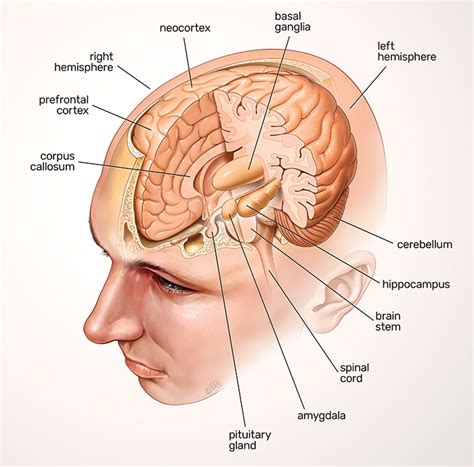What nutritional strategies boost men’s focus and sustained energy?

Fueling Peak Performance: Nutrition for Men’s Focus and Energy
In today’s demanding world, men often seek ways to maintain sharp mental focus and consistent energy levels to excel in their careers, hobbies, and personal lives. While sleep and exercise play crucial roles, nutrition stands as a cornerstone for optimizing brain function and physical vitality. A well-designed dietary approach can significantly impact cognitive clarity, mood stability, and the ability to sustain effort without burnout.

The Power of Macronutrients for Sustained Energy
The foundation of sustained energy and focus lies in balancing macronutrients: carbohydrates, proteins, and fats.
-
Complex Carbohydrates: These are your brain’s preferred fuel source, providing a steady release of glucose into the bloodstream. Opt for whole grains like oats, quinoa, brown rice, whole-wheat bread, and starchy vegetables such as sweet potatoes and butternut squash. Avoiding refined sugars and simple carbs prevents energy spikes and subsequent crashes that can impair focus.
-
Lean Proteins: Essential for building and repairing tissues, proteins also play a critical role in neurotransmitter production. Foods like chicken breast, fish, lean beef, eggs, legumes, and Greek yogurt offer amino acids that support cognitive function and provide a sustained sense of fullness and energy. They help stabilize blood sugar and prevent the energy slumps associated with carb-heavy meals alone.
-
Healthy Fats: Crucial for brain health and hormone production, healthy fats are vital for focus. Omega-3 fatty acids, found in fatty fish (salmon, mackerel), walnuts, flaxseeds, and chia seeds, are particularly beneficial. Monounsaturated fats from avocados and olive oil also support overall brain function and help in the absorption of fat-soluble vitamins.
Key Micronutrients for Cognitive Health
Beyond macronutrients, several vitamins and minerals are indispensable for maintaining peak mental and physical performance.
-
B Vitamins: The entire B-complex (B6, B9, B12) is involved in energy metabolism and neurotransmitter synthesis. Deficiencies can lead to fatigue and impaired cognitive function. Rich sources include leafy greens, whole grains, eggs, and lean meats.
-
Iron: Essential for oxygen transport in the blood, adequate iron levels prevent fatigue and enhance focus. Men should be mindful of their iron intake through sources like red meat, spinach, and lentils, though excessive intake should be avoided.
-
Magnesium: Involved in over 300 biochemical reactions in the body, magnesium supports nerve and muscle function, energy production, and contributes to relaxation. Nuts, seeds, leafy greens, and dark chocolate are excellent sources.
-
Vitamin D: While known for bone health, Vitamin D also plays a role in mood regulation and cognitive function. Sunlight exposure and foods like fatty fish and fortified dairy are key.

Hydration and Strategic Food Choices
Don’t underestimate the power of water. Dehydration, even mild, can significantly impact concentration, memory, and mood. Aim for consistent water intake throughout the day.
Incorporate specific ‘brain foods’ into your diet:
-
Berries: Rich in antioxidants, they protect the brain from damage and improve memory.
-
Leafy Green Vegetables: Spinach, kale, and collards are packed with vitamins K, lutein, folate, and beta-carotene, all linked to brain health.
-
Nuts and Seeds: Excellent sources of healthy fats, protein, and vitamin E, which protects cells from oxidative stress.
-
Green Tea: Contains L-theanine, an amino acid that can cross the blood-brain barrier and promote a relaxed, focused state, complementing the modest caffeine content.

Meal Timing and Avoiding Pitfalls
The timing of your meals can be as important as what you eat. Distribute your food intake across three balanced meals and 1-2 healthy snacks to maintain stable blood sugar levels and energy. Avoid skipping meals, which can lead to fatigue and overeating later.
Limit or avoid:
-
Processed Foods and Sugary Drinks: These cause rapid blood sugar fluctuations, leading to energy crashes and reduced focus.
-
Excessive Caffeine: While a moderate amount can boost alertness, too much can lead to jitters, anxiety, and disrupt sleep, ultimately impairing focus.
-
Heavy, Fatty Meals: These can divert blood flow to the digestive system, making you feel sluggish and less mentally sharp.

Conclusion
Adopting strategic nutritional habits can profoundly impact men’s focus and sustained energy. By prioritizing complex carbohydrates, lean proteins, healthy fats, and essential micronutrients, alongside adequate hydration and mindful meal timing, men can optimize their cognitive function and physical vitality. Small, consistent changes can lead to significant improvements in daily performance and overall well-being. Consult with a healthcare professional or registered dietitian for personalized dietary advice tailored to your specific needs.










